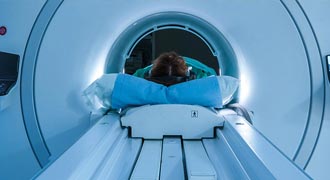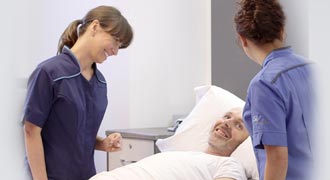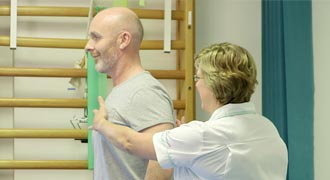
The Imaging Centre
A dedicated fixed site imaging centre with state-of-the-art facilities
We welcome your views on our website and invite you to take part in a brief survey when you've finished your visit.
Your response will help us improve the site and the experience we offer to visitors.
Specialist team based at Spire Tunbridge Wells Hospital
Spire Tunbridge Wells Orthopaedics offers expert diagnosis, treatment and rehabilitation for a wide range of musculoskeletal conditions. Based in Spire Tunbridge Wells Hospital, we aim to provide patients with the highest quality of private healthcare. Our orthopaedic surgeons collectively have over 60 years’ experience allowing them to deliver the highest clinical standards at all times and to go above and beyond your expectations.

A dedicated fixed site imaging centre with state-of-the-art facilities


A team of expert physiotherapists delivering you a wide range of physiotherapy treatments.
Spire Tunbridge Wells Orthopaedics can offer a comprehensive range of services and facilities in a comfortable and relaxed environment. The hospital also has a dedicated Imaging Centre for all your scanning and imaging needs including state-of-the-art MRI, CT scanners and radiology on site.
Spire Orthopaedics offers expert diagnosis and specialist treatment for all foot and ankle conditions.
The most common conditions we treat are:
Bunion Correction
Bunions are extremely common and are a genetic condition. The majority of people with bunions will have a family history of the condition. Other causes of bunions can be through injury, arthritis and muscle imbalance.
Symptoms
It is important to note that bunions are not always painful. However, here are some of the symptoms that may occur from a bunion.
Treatment for bunion correction will depend on the size and severity of the bunion. Around half of all bunion sufferers will not need surgery. Nonsurgical treatment can be used to alleviate the pain and reduce the pressure on the foot to stop it rubbing.
Ankle Arthroscopy
There are different types of ankle surgery and arthroscopy is applied in a variety of different ways to treat foot and ankle conditions. It can be used to diagnose problems by providing the surgeon with a clear image of all the joints and structures inside the foot and ankle.
Symptoms
Ankle Replacement
The ankle is a complex joint because it needs to flex and rotate. Furthermore, it receives a lot of strain compared to other joints in the body. Ankle replacement is an operation to remove the diseased and damaged parts of the ankle and replace them with an artificial joint.
The procedure is most commonly performed on patients who are suffering with advanced ankle osteoarthritis.
Symptoms
Spire Orthopaedics offers expert diagnosis and specialist treatment for all hip conditions.
In a healthy hip joint the bones are connected to each other by ligaments which are lubricated allowing movement without friction. The surfaces of the bones are covered in a smooth cartilage allowing them to slide over each other and support the joint.
The most common conditions we treat are:
Hip Arthroscopy
Wear and tear of the ball and socket joint can lead to damage of the hip joint.
Hip arthroscopy is a surgical procedure allowing consultants to treat hip problems.
Symptoms
Hip Replacement
A hip replacement is a common type of surgery where the damaged hip joint is replaced with an artificial one.
The cartilage can be damaged and worn out, resulting in the joint becoming inflamed and irritated. This then leads to pain and discomfort for the sufferer.
Symptoms
The cartilage will begin to wear away resulting in the top of the femur bone rubbing directly on the socket. This will erode the bone and make the hip extremely uncomfortable and painful.
Patients may experience:
Spire Orthopaedics offers expert diagnosis and specialist treatment for all knee conditions.
The knee is the largest joint in the body and carries half the human’s body weight. It is therefore put under a lot of stress and is used daily. Naturally, it is prone to wear and tear, injury and arthritis and can cause a great deal of pain to the sufferer if it is damaged or diseased.
The most common conditions we treat are:
ACL Reconstruction
The Anterior Cruciate Ligament (ACL) is a tough band of tissue connecting the femur (thigh bone) to the tibia (shin bone).
The ACL is a commonly injured knee ligament. If it is torn the knee will become very unstable and lose its full range of movement.
Symptoms
Following an injury a loud popping noise
Knee Arthroscopy
An arthroscopy is a type of keyhole surgery used both to diagnose and treat problems with the joints. A knee arthroscopy gives doctors a clear view of the inside of the knee.
Symptoms
A knee arthroscopy may be needed if the patient is suffering ongoing knee problems and discomfort.
Knee Replacement
A knee replacement will increase the mobility of the sufferer, reduce the pain and increase the standard of living. The type of joint replacement depends on the area of the knee that is damaged or diseased. A knee joint can either be partially replaced where just the knee cap alone is replaced, or the entire knee can be replaced.
Symptoms
Spire Tunbridge Wells Orthopaedics offers expert diagnosis and specialist treatment for all shoulder conditions.
The most common conditions we treat are:
Rotator cuff repair
The rotator cuff is the group of muscles and tendons that stabilise the shoulder.
Symptoms
Sometimes shoulder cuff tears can be present without any symptoms in older people.
Early treatment can prevent rotator cuff tears from getting worse and can help to restore function and mobility in the shoulder.
Frozen shoulder
Frozen shoulder is a painful condition that affects the movement of the shoulder.
The condition arises when the shoulder capsule (the flexible tissue) becomes inflamed and thickened and forms scar tissue. This can result in stiffness and pain.
Symptoms
Shoulder arthritis
Shoulder arthritis is the progressive wearing down of the shoulder ball and socket joint.
There are different types of arthritis that can affect the shoulder. These include:
Symptoms
Spire Tunbridge Wells Orthopaedics offers both non-surgical and surgical treatments for shoulder conditions.
Spire Orthopaedics offers expert diagnosis and specialist treatment for all shoulder conditions.
The most common conditions we treat are:
Rotator Cuff Repair
The rotator cuff is the group of muscles and tendons that stabilise the shoulder.
Symptoms
Sometimes shoulder cuff tears can be present without any symptoms in older people.
Early treatment can prevent rotator cuff tears from getting worse and can help to restore function and mobility in the shoulder.
Frozen Shoulder
Frozen shoulder is a painful condition that affects the movement of the shoulder.
The condition arises when the shoulder capsule (the flexible tissue) becomes inflamed and thickened and forms scar tissue. This can result in stiffness and pain.
Symptoms
Shoulder Arthritis
Shoulder arthritis is the progressive wearing down of the shoulder ball and socket joint.
There are different types of arthritis that can affect the shoulder. These include:
Symptoms
Spire Orthopaedics offers both non-surgical and surgical treatments for Shoulder conditions.